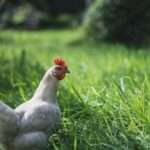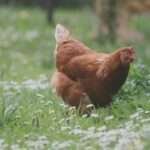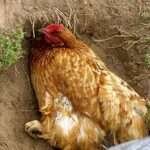As a responsible chicken keeper, ensuring the health and well-being of your flock is of utmost importance. One critical aspect of chicken care is managing internal worm infestations, which can pose significant health risks if left unaddressed. While chemical dewormers are commonly used to combat worms, many chicken keepers are increasingly worming chickens naturally to support their flock’s health.
In this article, we will explore the world of natural worming for chickens, understanding how to prevent worm infestations through supplements and herbs. We will also discuss the limitations of these natural approaches and when it becomes necessary to seek professional treatment. By the end of this article, you will have a comprehensive understanding of the benefits and challenges of worming chickens naturally, empowering you to make informed decisions to maintain a healthy and thriving flock.
Understanding Worm Infestations in Chickens:
Internal worms can be a persistent challenge for chickens, compromising their overall health and productivity. The most common types of internal worms that affect chickens include roundworms, tapeworms, cecal worms, and gapeworms. These parasites can reside in different parts of the chicken’s digestive tract, causing various health issues.
Identifying the Signs and Symptoms of Worm Infestations: Detecting worm infestations in chickens can be challenging as the signs may vary depending on the worm species and the severity of the infestation. Common signs to watch out for include weight loss, reduced egg production, lethargy, diarrhea, paleness of the comb, and swelling in the abdomen. Additionally, chickens with severe worm infestations may exhibit decreased appetite, huddling together, and general weakness.
The Impact of Worm Infestations on Chicken Health and Egg Production: Internal worms can have a detrimental impact on chicken health, leading to malnutrition, anemia, and a weakened immune system. In severe cases, worms can cause intestinal blockages and respiratory issues. Worm-infested chickens may not lay eggs regularly, and the quality of the eggs produced may also decline.

Natural Prevention: The Role of Supplements and Herbs:
Garlic: The Natural Anti-Parasitic Properties of Garlic: Garlic is renowned for its many health benefits, and it can also play a role in supporting chicken health. Garlic contains allicin, a compound with potent anti-parasitic properties. When chickens consume garlic, the allicin is excreted through their respiratory and digestive systems, helping to deter and expel intestinal worms.
Chilli: Using Capsaicin in Chilli to Deter and Expel Worms: Capsaicin, the active component in chilli peppers, has been found to have anti-parasitic properties. Feeding small amounts of dried or ground chilli to chickens can help deter and eliminate internal parasites. Capsaicin is particularly effective against roundworms, cecal worms, and tapeworms.
Herbs with Worm-Repelling Properties: Certain herbs are known to have worm-repelling properties and can be incorporated into the chicken’s diet. Oregano, thyme, and wormwood are examples of herbs that may help reduce worm burdens in chickens. These herbs can be added to the feed or provided as dried and chopped herbs for chickens to peck at.
When Worming Chickens Naturally is Ineffective:
While natural worming methods can be beneficial for many chickens, it is essential to understand their limitations. Natural worming approaches may not always be effective in completely eliminating worm infestations, especially in severe cases. The following are reasons why natural methods may prove ineffective:
1. Worm Species and Resistance: Different worm species have varying levels of susceptibility to natural remedies. While some worms may be deterred or expelled by garlic and chilli, others may not be affected. Additionally, over time, worms can develop resistance to certain natural substances, reducing their efficacy.
2. Severity of Infestation: Natural worming methods may be more effective in mild to moderate infestations. In severe cases, a larger worm burden may require a more potent and targeted treatment approach.
3. Inconsistent Application: Achieving consistent and uniform dosage of natural supplements can be challenging, particularly in free-range or foraging flocks. Chickens may not always consume enough of the herbs or spices to have a significant impact on worm infestations.
4. Environmental Contamination: Chickens living in heavily contaminated environments, such as overcrowded or unsanitary coops, may be repeatedly exposed to worm eggs. In such cases, even natural worming methods may struggle to keep up with the continuous exposure.
5. Immune System Variability: Individual chickens may have varying levels of immunity to worm infestations based on their genetics, overall health, and age. Some chickens may naturally have better resistance to worms, while others may be more susceptible.
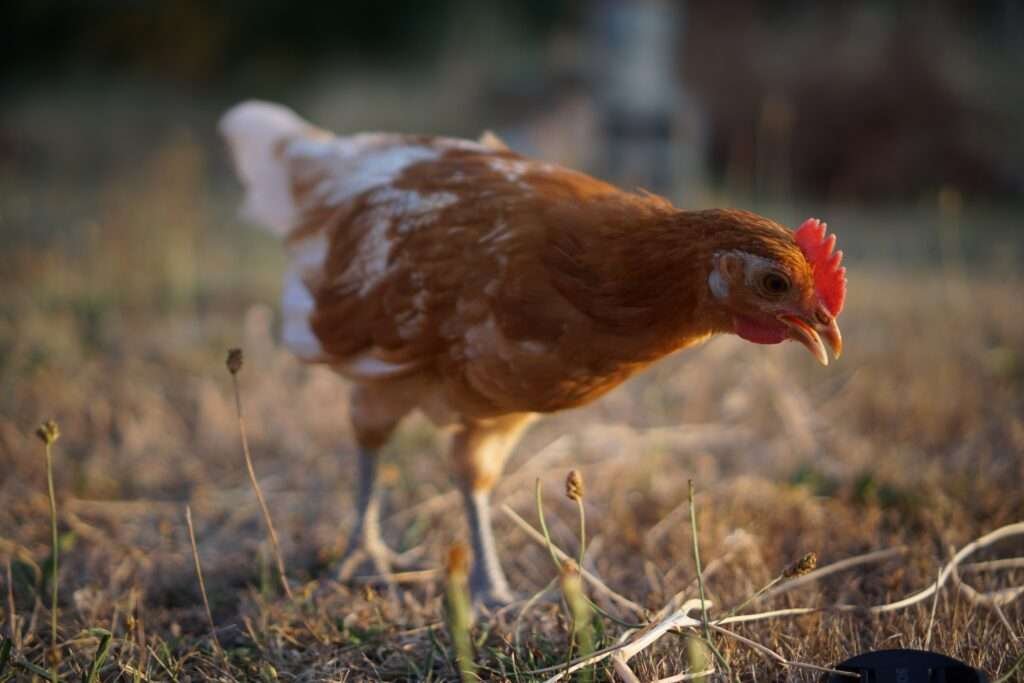
The Importance of Regular Fecal Testing:
To effectively manage worm infestations in chickens, regular fecal testing is crucial. Fecal testing helps determine the worm burden present in the flock and assess the effectiveness of the worming strategies in use. By conducting fecal tests at least twice a year, chicken keepers can gain valuable insights into the worm population and identify any emerging issues.
Recognizing Signs for Professional Treatment:
There are instances when natural methods may not be sufficient, and seeking professional treatment becomes necessary. If you observe the following signs, it is essential to consult a veterinarian:
1. Persistent Health Issues: If your chickens continue to exhibit signs of poor health despite natural worming efforts, it may indicate a need for professional intervention. Veterinarians can perform thorough examinations to diagnose and treat any underlying health issues, including severe worm infestations.
2. Significant Weight Loss and Anemia: Chickens with severe worm infestations may experience significant weight loss and become anemic. These chickens require immediate attention and appropriate treatment to prevent further complications.
3. Prostration and Lethargy: Chickens that appear weak, lethargic, or unresponsive may be suffering from severe worm infestations. These chickens require urgent veterinary care to determine the cause of their condition and provide appropriate treatment.
4. Abnormal Droppings and Changes in Egg Production: Abnormal droppings, including diarrhea or bloody stools, may indicate a worm infestation that requires professional attention. Similarly, a sudden decline in egg production or changes in egg quality may be linked to worm-related health issues.
In the next section, we will explore how to integrate natural worming methods into your chicken care routine effectively. By striking a balance between natural and chemical approaches, you can maintain a proactive and holistic approach to worm prevention.
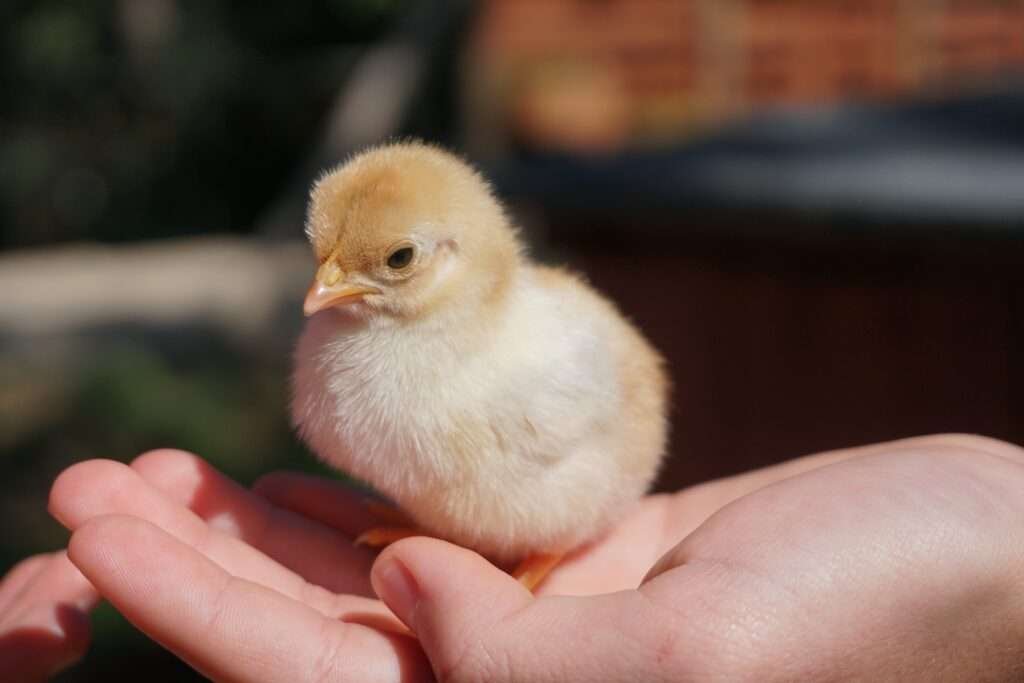
Worming Chickens Naturally with your Care Routine:
Determining the Appropriate Dosage and Frequency of Natural Supplements: When using natural supplements like garlic and chilli, it’s essential to find the right dosage for your flock. Start with small amounts and gradually increase as needed, observing your chickens’ response. Consult with experienced chicken keepers or veterinarians for guidance on appropriate dosages based on the size and age of your flock.
Maintaining a Well-Balanced Diet to Support Chicken Health and Immunity: A healthy and balanced diet is a fundamental aspect of chicken care, including worm prevention. Ensure that your chickens have access to a balanced commercial feed or a well-rounded diet consisting of grains, seeds, fruits, vegetables, and protein sources. A well-nourished chicken is better equipped to resist worm infestations and maintain overall health.
Rotating Natural Worming Treatments to Minimize the Risk of Resistance: To reduce the risk of worms developing resistance to natural remedies, consider rotating the herbs and supplements you use for worming. Alternating between garlic, chilli, and other herbs with worm-repelling properties can be beneficial in preventing the worms from adapting to any specific treatment.
Additional Strategies for Worming Chickens Naturally:
Implementing Good Flock Management Practices to Reduce Worm Transmission: Practicing good flock management is essential for preventing worm infestations. Regularly clean and sanitize the coop and nesting areas to minimize worm egg contamination. Provide ample space for your chickens to roam, forage, and dust bathe, as these activities contribute to their overall health and immunity.
Addressing Environmental Factors that Contribute to Worm Infestations: Environmental factors, such as damp and muddy conditions, can increase the risk of worm infestations. Improve drainage in the coop and run area to reduce moisture and create a drier environment. This helps to limit the survival and transmission of worm eggs.
Utilizing Alternative Methods like Diatomaceous Earth and Pumpkin Seeds: Diatomaceous earth (DE) is a natural substance that can be used to manage external and internal parasites. When chickens ingest DE, it acts as an abrasive material that can help to control internal worms. Similarly, feeding chickens pumpkin seeds may offer some level of protection against certain types of worms.
The Role of Fecal Testing in Worm Monitoring:
Understanding the Importance of Fecal Testing in Evaluating Worm Burdens: Fecal testing is a valuable tool for assessing the worm burden in your flock. Regular testing allows you to make informed decisions about the need for worming and the effectiveness of your current worming strategies.
How to Collect and Submit Fecal Samples for Accurate Testing: Collecting fecal samples for testing is a straightforward process. You can collect fresh droppings from multiple chickens and submit them to a veterinarian or a specialized laboratory for analysis. The results will indicate the presence and type of worms present in your flock.
Interpreting Fecal Test Results and Adjusting Worming Strategies Accordingly: The results of fecal tests will help you determine whether your worming efforts have been successful or if additional measures are required. Consult with your veterinarian to interpret the results and develop an appropriate worming plan tailored to your flock’s needs.
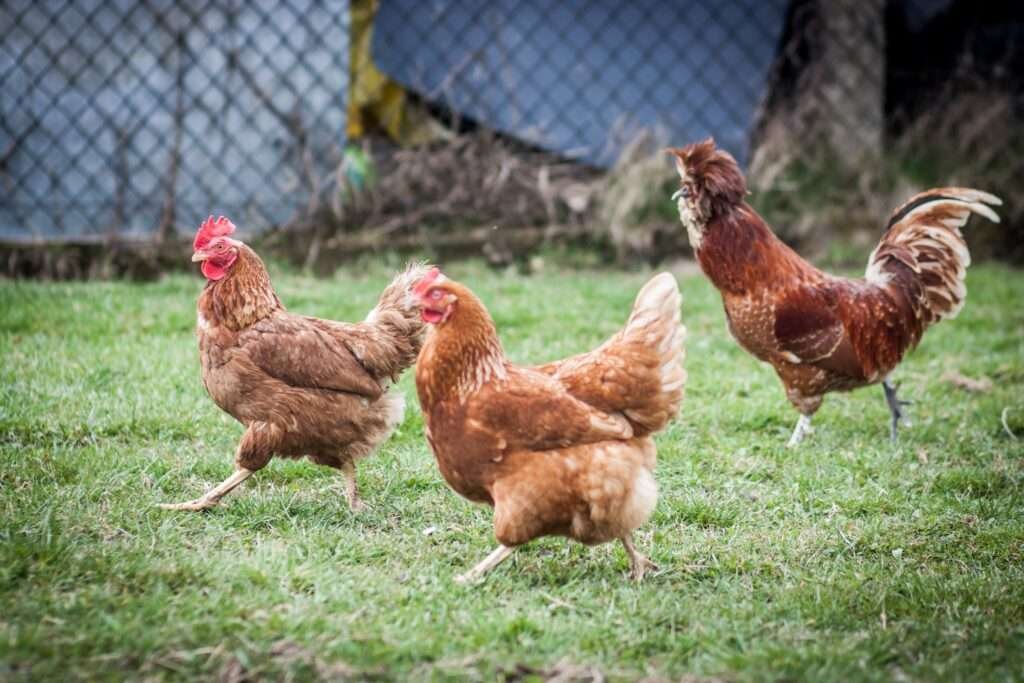
Balancing Natural and Chemical Worming Approaches:
Exploring Integrated Worming Strategies that Combine Natural and Chemical Methods: For some chicken keepers, a combination of natural and chemical worming approaches may be the most effective strategy. By using natural remedies as preventive measures and resorting to chemical dewormers when necessary, you can strike a balance between natural health support and targeted worm treatment.
When and How to Use Chemical Dewormers Responsibly and Judiciously: If natural methods prove ineffective or if severe worm infestations are present, chemical dewormers may become necessary. Always follow the manufacturer’s instructions and dosage guidelines when administering chemical dewormers, and consult with a veterinarian if needed.
The Benefits of a Holistic Approach to Chicken Worming for Long-Term Health
A holistic approach to worming emphasizes the importance of overall chicken health. By addressing not only worm prevention but also nutrition, environmental conditions, and flock management, you create an environment that promotes long-term health and minimizes the risk of worm infestations.
Worming Chickens Naturally
Worming chickens naturally is a valuable and effective method to support your flock’s health and reduce worm burdens. By incorporating supplements like garlic and chilli, along with herbs and other natural methods, you can enhance your chickens’ immunity and resilience to worms. However, it is essential to recognize the limitations of natural worming and to be vigilant for signs of persistent infestations that may require professional treatment. By integrating natural worming methods into your chicken care routine, practicing good flock management, and utilizing appropriate deworming strategies when necessary, you can ensure the well-being and longevity of your beloved feathered friends.


